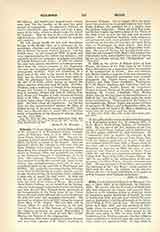

Gilmore, PATRICK SARSFIELD, musician; b. at Ballygar, Galway, Ireland, December 25, 1829; d. at St. Louis, September 24, 1892; a kinsman of Daniel O’Connell. In 1848 he arrived at Boston, Mass., becoming leader successively of the Suffolk, Boston Brigade, and Salem bands. In 1858 he founded “Gilmore’s Band”, in later years famous as the leading military and concert-band of America. When war was declared, Mr. Gilmore and band enlisted with the 24th Mass. Volunteers, accompanying General Burnside to South Carolina. After the temporary discharge of bands from the field, Governor Andrews placed their reorganization in Mr. Gilmore’s hands, and General Banks created him bandmaster general. For patriotic and musical services at the inauguration of Governor Hahn of Louisiana, one hundred prominent representatives of the army, navy, and New Orleans civic government, tendered Mr. Gilmore a complimentary banquet at the historic old St. Charles Hotel, presenting him with an inscribed silver goblet containing five hundred gold pieces, and a letter from Governor Hahn to President Lincoln, introducing “P. S. Gilmore” as “a musician of the highest abilities and a true gentleman, who had rendered important aid to the nation’s cause by his faithful and patriotic services”.
In celebration of the establishment of national peace, Mr. Gilmore organized and conducted two of the most gigantic popular festivals known in musical history—the National and International Peace Jubilees, held at Boston in 1869 and ’72, in which thirty thousand singers, two thousand instrumentalists, the most famous composers vocal and instrumental artists of the day, and the best military bands of Europe participated. Coliseums were erected for the occasions, holding respectively sixty thousand persons. In recognition of these achievements, Mr. Gilmore was presented by the citizens of Boston with gold medals and the sum of fifty thousand dollars. In 1873 he went to New York, as bandmaster of the 22nd Regiment. In 1878, during a concert-tour of the principal cities of Europe, he received a medal from the French government. In 1892, “Gilmore’s Band”, numbering one hundred men, were celebrating by a great national festival-tour the four-hundredth anniversary of America‘s discovery by Columbus, when his death occurred suddenly, consoled by the last Sacraments of the Church. Both civic and military honors were paid him in death, and memorial services were held over the entire country. Fourteen years after his death, on May 15, 1906, under the auspices of an illustrious committee and directorship, a great Gilmore Memorial Concert was given in Madison Square Garden (originally Gilmore’s Garden), and an audience of ten thousand honored his memory. P. S. Gilmore won his title of “Father of Military Bands”, by his elevation of the brass band to a dignified musical status. He was the first to mellow the brasses by the introduction of reeds, to claim a place for the band on the concert-platform, and to popularize classical music by adapting orchestral arrangements for reed-band interpretation. From the quick-steps, marches, and dances characterizing band-music at its start, his unique personal effort attained in the single program of his representative last concert, to the great works of the tone-masters, Bach, Schumann, Handel, Rubenstein, Wagner, and Liszt. He was at once a popular entertainer and an educator of the people. Many songs (words and music), marches, etc. were composed by Mr. Gilmore, who also wrote “The History of the Boston Peace Jubilee”.
MARY G. CARTER

